Expats Talk About The Biggest Challenges They Face Living in Latin America
Summary: Expats talk about some of the biggest challenges they've faced living in Latin America. Whether you're moving to Panama City or Punta del Este, this article is a must read to help you prepare (hint: you'll be much happier if you learn the language) and adjust your expectations (realities: the roads are rough, the pace of life is slower and bureaucracy is unavoidable). Despite all of the challenges, the list of what expats like about life in Latin America far exceeds the challenges.
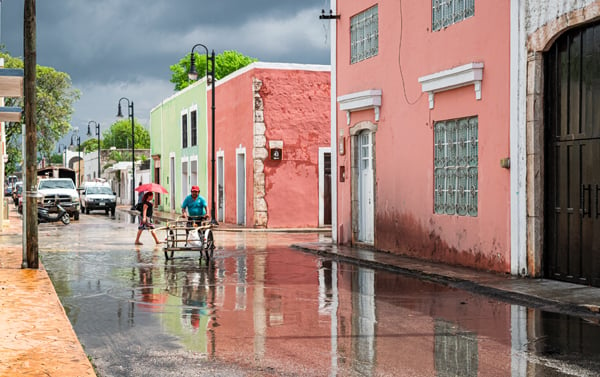
We asked expats in Latin America about the challenges of living there and adapting to the local cultures. Despite each country's unique challenges, there are a lot of commonalities in the responses we received. "Everything seems to move a lot slower outside of the US. And ironically, this was one of the main reasons why we left the US," wrote one expat. "The most challenging has been the language barrier. Although I'm getting better at the language I still have a long way to go," commented another. Bureaucracy and dangerous driving (and walking) conditions also make a lot of peoples' lists. Don't let these answers dissuade you, but let them help you prepare yourself and establish realistic expectations for life in Latin America. For most expats, the benefits of life there far outweigh the challenges. "Our experience has met and exceeded our expectations. We have met some incredible people. We have more friends than we could have imagined; not to mention a 'social life', something we barely had in the States," remarked one expat in Ecuador.
Mexico
Another expat living in Merida said, "I think language is the main challenge. Originally, we were going to move to Playa del Carmen where many of the Mexicans speak English as it is a tourist town. We changed plans and moved to Merida and have found that the majority of Mexicans do not speak English, so it is definitely a challenge daily!"
"A delightful challenge is to let go of the 'pressue cooker' lifestyle which I lived while climbing the ladder of success. The language, until I learn more, is still slightly a challenge. And, since I really enjoy knowing what's going on in the country in which I live, I really find it challenging that I don't understand the politics of the county. Lastly, I find it very difficult to find other expats to socialize with. Where are you all hiding?," explained one expat living in Tequisquiapan.
"Can't really think of any past the language barrier when you can't talk to a car mechanic or shop person. Cops have all been extremely nice and not threatening at all," said one expat living in Ajijic (Lake Chapala).
"So far everything has moved right along except at a slower pace. We used the services of a recommended local attorney and we have a property manager. Between the two we have taken care of buying a home, car and paying the bills. If we had to do this alone it would take more time and probably peg the frustration meter. We will eventually take over the bill paying etc but for now this has proven to be a worth while expenditure," commented one expat who made the move to Mexico.
"The frequency of the crime is never easy to adjust to. It's much better now, but when I moved to Mexico for the first time, smog was a big problem. There seems to be a lack of organization in the way the country functions. But if you look at it with a sense of humor, it's almost charming. No one likes corruption, and it's a problem here," wrote an expat living in Mexico City.
"Getting mail! The mail system in Mexico is not great, or secure, so I need to rely on friends coming from the States to bring mail and packages. Receiving mail in other countries where I've lived has also posed a challenge in that forwarding mail is often quite expensive," said an expat in Lake Chapala.
"Knowing that you are never really going to be part of it... that you'll always be an outsider to some extent," said another expat in Lake Chapala.
An expat living in Mazatlan wrote, "Getting used to the acceptance of bureaucracy, the lack of urgency, the hierarchy of society and wondering where I fit sometimes. The gender roles - I get really upset when my wife asks a question and I get the answer. I really hate it when a National assumes that I am a snowbird, a vacationing tourist or a retired person. The locals are really not used to people our age (in our 40's) moving here working and raising a family. They have trouble categorizing us. That has made it a little hard to make local friends, but we are persistent and it is starting to pay off. We ask things like when is the first day of school. In the States that is a reasonable request and when you get an answer it is a certainty. Here, it is a moving target. That fact is not mentioned in the answer and we have to get used to asking back after the answer (to almost anything), 'might that change?'"
"The utter lack of punctuality. The casual approach and the scandalous leeway business and professionalism are given. The poverty, perhaps, is the most jarring of them all. Be prepared to be galvanized by it," explained one expat living in Guadalajara, Mexico.
"Pounds to kilos. :-) Power-outages for no reason. Bugs (especially black widow spiders and scorpions hitching a ride on the plant trucks). Exchange rates and devaluations. (Luckily we had a USD account when they devalued the peso by 50%," commented another expat living in Guadalajara, Mexico.
"Delays in acquiring services, internet and repairs in apartment. Dust and heavy air. Interruptions in water and power. Language. Uneven, broken sidewalks," wrote one expat in Cabo San Lucas, Mexico.
"Not reading newspaper editorials that dare to criticize any Mexican political officials. Plus, very few people say what is on their minds, sort of the opposite of African-Americans, West Indians, or Jews in the United States. It is a xenophobic culture, for the most part, sort of like the Chinese culture. Mexicans are far, far more relaxed when and if they are amongst their own kind, although there are occasional and definite exceptions," said another expat living in Mexico City, Mexico.
Belize
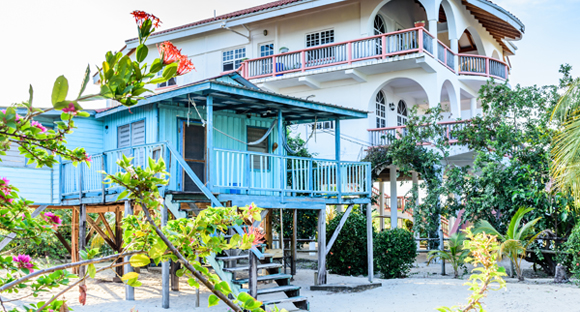
"The most challenging aspects of the new culture: 1) the absence of the concept of customer service: for example, even a glass of water is charged in a restaurant, mostly Chinese controlled 2) the necessity of renting or buying a car as taxi service in the evening and at night is not there 3) the concept of unexposed Sewers as sewers do not have cover 4) the rarity of night life: bars, coffee places," wrote one expat in Belmopan.
"Newspapers.... frontline news is always about murders etc. so it does scare you a bit. Newspapers.... each one is very politically orientated. So you get very one sided views. QRP (Qualified Persons Package).... can hold you back from doing things you might want to do. It does get frustrating," explained an expat who made the move to Belize.
"Remembering not to be in a hurry! The day is plenty long and there is always tomorrow," wrote one expat living in Hopkins Village.
Another expat said, "The most challenging difficulties to overcome or get used to include the unpaved roads and the slower paces of the various offices that service automobile registrations, immigration reports, and even paying our bills in person. No worries."
"For me, driving is difficult, especially at night. Pedestrians don't usually wear clothing that is visible at night, and safety does not always seem to be a concern," cautioned another expat in Belize.
Guatemala
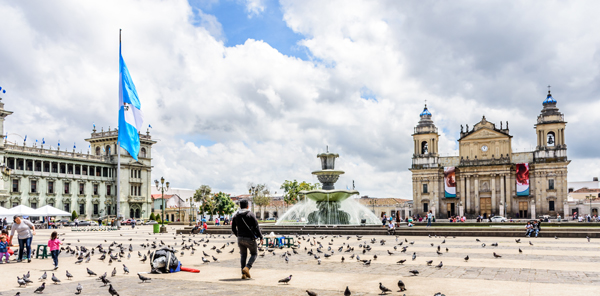
"Security (18 murders per day, many robberies), understanding people (learning a new language), not working," wrote one expat in Guatemala City, Guatemala.
"Hello, the language... kind of need it to be part of the culture and not separate...helps to function. Using up all my fresh veggies and fruits before they go bad. A juicer helps with this... Sticking to an annual living budget. I want to eat out more than I should in order to supply the need of wanting the company of others. Having some one do my laundry, which is not something I am use to and then not understanding why she would get upset when I offer to help...true story! Not having easy shopping access to my painting supplies and books! But I knew this before I came... Finally, the reality of being on a vacation is not the same as living here full time. Belize was vacation. Here it is like a weirdness...part vacation and part living... sometimes my brain doesn't wrap itself around this idea. So when I am not working, I feel like I should be. And, when I am working, I feel like I should be off exploring. Then there are the days where I am happy to be working in paradise and it just feels strange...like pinch me some one...this cannot be for real," explained one another expat living in Lake Atitlan, Guatemala.
An expat living in San Juan La Laguna wrote, "The most challenging has been the language barrier. Although I'm getting better at the language I still have a long way to go. Another challenge is the double price standard for foreigners. I'm not a tourist, I live here but still am charged double or higher for many goods and services. There is also an attitude among the locals that there's something wrong with a single woman living alone. It does get a bit tiresome explaining that I'm single because I want to be. And no, I'm really not interested in meeting your brother, cousin, neighbor, etc."
"The chronic noise of vehicles - grinding gears, horns and just general loudness not of the people but the blaring speakers and vehicles... non stop chaos! Arrgh! The other challenge in Guatemala is finding a decent WIFI signal. Not common like up in USA or Canada... at all," said another expat in Quetzaltenango.
El Salvador
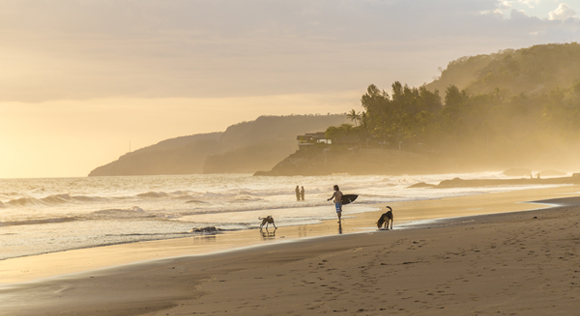
"The way of thinking is very different than someone born and raised in US, Canada, UK, Australia or Western Europe - Often 'never the twain shall meet'," wrote an living in San Salvador, El Salvador.
"Relativity of time. Communication. Getting directions to anywhere is nearly impossible unless you already know how to get there," said another expat living in San Salvador, El Salvador.
Honduras

"Backwardness, bureaucracy, security and safety. Also, because I don't know how things work, the most basic task can be very daunting--buying groceries, opening a bank account, even taking a walk," confessed an expat living in Siguatepeque, Honduras.
"This is a city in a third world country, don't consider moving here until you can accept the many differences in lifestyle from a developed country like the US. Many of the everyday services that you have don't exist here. The pace is much slower, service in many businesses is poor or non-existent and you will only increase your own blood pressure trying to demand better service. Utilities that you expect to receive are sometimes non-existent or of poor quality, so make sure if you rent or buy that these are already in place, promises to install them in most cases will only lead to your frustration. You can live very well here on much less than you can imagine, and this is an ideal location for retirees on limited budgets and its relatively easy to obtain a resident Visa. Explore the area and have or learn basic conversational Spanish before making a final decision to live here," wrote an expat in La Ceiba.
Nicaragua
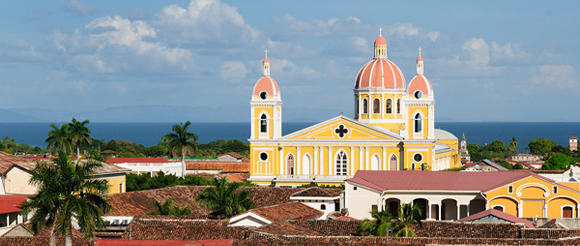
An expat in Granada said, "Learning the language has been a challenging but fun task. Nicaragua being a poor country, you are challenged to see things in a new perspective. You first learn there is a huge difference between being poor and having no money. You appreciate how many people live well without money and those that just seem mired in poverty. The average education level here is around the third grade and the education system is so lacking that many people just don't have a lot of common knowledge. The expats know the history here often better than the locals. Once in a while I just want to have a deeper conversation with someone without arguments. The language barrier and level of education often prevents it."
"Buying things that I perceive as 'necessary' like furniture, basic household stuff etc. You can't go to one store like Walmart or Target or Home Depot and get what you need and go home. It takes LOTS of time, effort and savvy to get the basics of living," mentioned another expat when asked about living in Nicaragua.
 RelocateNow Costa Rica
RelocateNow Costa RicaConnect
RelocateNow Costa Rica's clients who run through the RelocateNow Program get quick results in formulating and successfully executing our laid out plan for moving to Costa Rica! Expert consulting for future expats in Costa Rica who wish to fast track the process of their move by receiving the specialized information they need, trustworthy connections within the country, and high level 1:1 support through the entire process.
Click connect to have our partner contact you via e-mail and/or phone.
 RelocateNow Costa Rica
RelocateNow Costa RicaRelocateNow Costa Rica's clients who run through the RelocateNow Program get quick results in formulating and successfully executing our laid out plan for moving to Costa Rica! Expert consulting for future expats in Costa Rica who wish to fast track the process of their move by receiving the specialized information they need, trustworthy connections within the country, and high level 1:1 support through the entire process.
Connect
Click connect to have our partner contact you via e-mail and/or phone.
Costa Rica
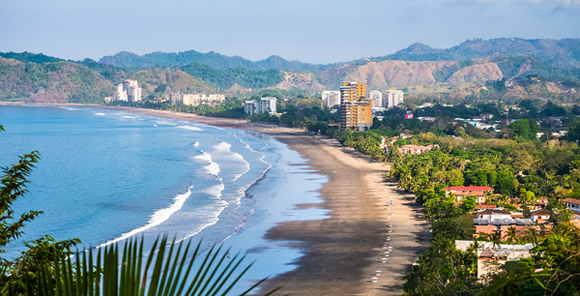
"Finding a place to live. Since Costa Rica does not have addresses, it was difficult finding my way around at first and trying to find an apartment based on an ad that said "200 metros detras del Pali," wrote an expat in Costa Rica.
"There are many challenges to being retired abroad and initially it is the aspect of not having the 9-5 pm routine with all it's familiarity. Add in you are now in a new environment, new culture, new surroundings, language issues to name a few. Leaving everything behind, including the familiarity of friends, family, work continuity can be very unsettling. Just getting out of the 'comfort zone' is difficult for many people. However, you can look at this aspect as a negative or positive challenge. The manner in which you handle this change has a large impact on your success as a retiree abroad," explained another expat living in Playa Hermosa de Jaco, Costa Rica.
"Honestly the most challenging aspect of the new culture is having to still deal with the US on some level. Using Skype to make US phone calls is extremely challenging. I needed my laptop repaired, the taxi took me to the repair shop but the 'guy' who does the repair was not there. The taxi driver made a phone call and found another guy who repairs computers. After driving up a narrow dirt road and missing the turn we finally arrived at a private home. A young man approached the car and told me in English 'sure i can fix' uh okay I replied. We drove away and I had an uneasy feeling that I just handed over my laptop to a stranger. Several days later and a few desperate emails I got my laptop back in good working order. Everyone I asked about the repair man's good standing was answered with 'of yeah I know him, hes a good guy.' Another challenge at first was finding certain products in the local grocery store. We have adapted to buying more local products, but one time I asked the store if they had decaf coffee? They promised to order some for me. Everyday or so I would ask 'did you get the decaf?' The response was 'maybe tomorrow' in Spanish of course. I finally gave up asking," said another expat living in Mal Pais, Costa Rica.
An expat in Escazu wrote, "Having patience. Everything seems to move a lot slower outside of the US. And ironically, this was one of the main reasons why we left the US. If you are retired, you do have time on your hands, but when someone says they are showing up to your house on Tuesday to fix a leaky faucet, you have to make sure to ask 'which Tuesday'."
"Language, and the slower pace. Both of which I was ready for I thought. However, it's more of a challenge than expected," wrote one expat living in San Isidro de Heredia.
"I think that banking can be a challenge and setting up insurance along with other services such as your electric, phone and internet services," said an expat in Samara.
"The most challenging aspects in Costa Rica is learning to leave the mentality of 'how things are done' back home. Costa Ricans are proud of their independence! You may have an idea on how to get things done or how it should be done. Leave that thinking behind. You may make a casual commment or suggestion and this is encouraged. However, it is important not to humiliate or act superior. Costa Ricans want to keep their culture alive and wherein there are interested in other cultures, they are very proud and independent of their own. It is important to adapt and not try to control or change your new homeland. Remember as an expat you are still a guest," advised one expat in Playa Jaco.
An expat in Grecia commented, "Communication, lack of mobility, the total inconvenience of it all. Also, trying to make ends meet financially. The phrase Retire for Less and only needing $1000.00 per month is bogus. In both locations supply and demand caused prices on consumer goods to spike, rent is on the rise. Only utilities were in line with the advertisements."
Panama
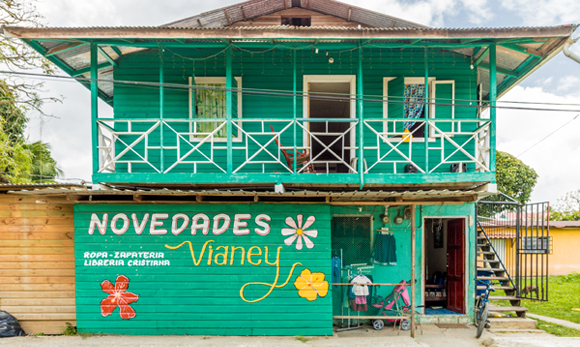
"Getting used to the cultural differences, language, pace of life and casual attitude about service," remarked an expat in Boquete.
"Sometimes it's a challenge to find ingredients for a recipe or find a good steak but everything can be worked around. Learning Spanish at retirement age is not easy for us but we plug along one word at a time and we are getting there. In our area [in Nueva Gorgona], there are a lot of expats and a lot of English is spoken and that makes learning Spanish less crucial but we still want to keep learning," added another expat who made the move to Panama.
"Culture....hhmmmm. Disinterested sales personnel who seem to resent being at their post. Bright colors are welcome and plentyful. Another challenge is the general physical size of the locals...as it relates to finding clothing that fits. If you are female and larger than a size 8, good luck finding undergarments. For my husband and his size 12 narrow foot, murder finding shoes," wrote one expat in Altos del Maria.
An expat in Santiago replied, "Learning that now actually means later, that pinning down someone to a specific time is almost impossible. That this is a nation of many first generation drivers, that there is very little 'do it yourself ability here'. Maintenance is not something that most people see the point in doing. Fast service with a smile almost doesn't exist. Most stores have no idea what they have in inventory and the process of giving them money for goods is cumbersome and painful. Although labor costs are low, mandatory benefits are extensive, for example one month of paid vacation annually, an extra month of pay every year, 14 legal holidays, 25% contribution to social security with no cap. There is an absolute inability to give directions. Most people are patient to a fault."
"The difference in attitude regarding such things as appointment times - even if you agree to meet at a specific day and time, if a Panamanian has a family event, another appointment or just decides not to come, they may show up an hour or two late or the next day. You need to be prepared to schedule and re-schedule without getting too frustrated," said another expat living in Boquete, Panama.
"Finding underclothing that fits. Being taller than most I meet has it's difficulties. I have had to order my clothing sometimes not because I am extremely overweight but because of differences in overall bone structures," said another expat living in Sora, Panama.
"For me it has been difficult to learn the language at my age. I try, I make my mistakes, but I am determined and so amazed at what is possible when you want something bad enough. To not learn the language is to miss out on so much," said another expat living in Panama City, Panama.
"I am the first to admit that learning a new language at an advanced age is a challenge. It's not easy but I'm plugging along and it's coming. Sometimes I'm challenged finding ingredients for a recipe but, I must admit, it's more reverse culture shock visiting the US and seeing the multitude of choices for any item and trying to decide which one to buy. Here either they have it or they don't, it's as easy as that," said another expat living in Nueva Gorgona, Panama.
Colombia
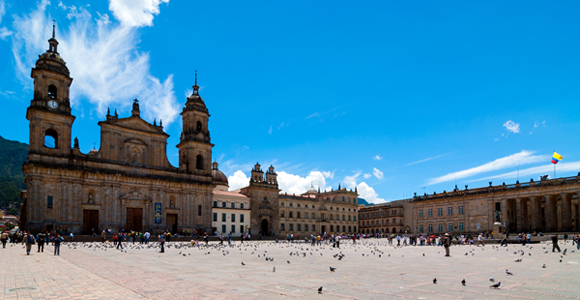
"I have the American sense of time ingrained in my very soul. I am really struggling to accept that things don't always happen when I want them to. I purchased a refrigerator that was promised to be delivered the next day at 4pm. 4pm came and went with no refrigerator being delivered. I then called the company and they assured me that it would be delivered by 8pm that night. Again, it was not. This pattern continued for several more days, until it was finally delivered. It didn't HURT me to wait, but was extremely frustrating for me," wrote one expat in Colombia.
"The language is a problem but of course it become less as I learn. One must be very careful as to where you go do to the problems of crime," commented an expat living in Medellin.
"The challenges for me are getting a better grip on the language, making friends, learning to pace myself, and being patient and tolerant. I don't want to be over-dependent on friends but at the moment I don't have another choice. My biggest challenge will be finding a suitable place to retire in this beautiful country that has so much to offer. And being a single woman without any family making this journey makes me feel very much like an odd ball," confessed one retiree in Bogota.
"In Bogota, the number of people, noise, poverty in the streets, petty crime, dating culture," said another expat.
"Primarily the language barrier, and second is the difference in which Americans value time much more than Colombians. Often I explain why we are impatient people, and why time is so valuable and we don't like to wait or waste it. I'm often saying that it's logical really, you can buy, find, replace, or make most anything but not time of course," said an expat in Villavicencio.
"The language of Spanish, it is full of rules and I still have trouble with the language, although I can speak well with my friends. Also the driving. It is very difficult to drive in the cities. I lost that independence of just jumping in my car to run to the store or go to an appointment. I have to always think about when to leave and how long it will take me etc. I still feel it is worth it to live as I do," wrote another expat.
"Finding a balanced social network can be difficult when you only hang with the Gringos," said an expat living in Medellin, Colombia.
Ecuador
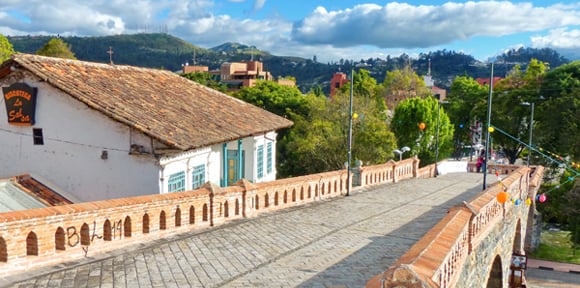
"Trying to speak Spanish in an environment where locals speak a highly colloquial form of it very quickly. Putting up with various unexpected bureaucratic offices," explained one expat living in Bahia de Caraquez.
An expat in Cuenca noted, "Mail service sucks, food quality is good, but not as spicy as I would like. Can't find Sriracha so I have to make my own."
"Really, it's been pretty easy. The biggest challenge has been preparing to move, shipping our goods and getting the visas," remarked another expat in Manglaralto.
"Parties start early and go on all day long. People feel free to just drop by to say hello - nice idea, but very different from what I'm used to, so it still throws me a bit. Anything to do with government or banking is mired in red tape and moves slowly. Banks are particularly frustrating because they act as if they really don't care if they have your business or not," commented one expat who made the move to Ecuador.
"The language. The ridiculously high cost of items such as autos, household items (i.e. blenders, juicers, gas grills, refrigerators, etc.). The lack of food options compared to the US," said another expat living in Guayaquil, Ecuador.
An expat in Bahia de Caraquez said, "Not knowing the language and the fact that especially in this part of Ecuador, they talk extremely FAST!"
Another expat reiterated the language struggle, "We are struggling with the language but that is getting better on a daily basis. Sometimes you think of what you were planning to say but it is later than you wanted to say it. People still talk to you like you understand, but they are patient and they don't get angry because you cannot speak their language."
"My Spanish - when caught off-guard, or in the early morning, my language ability (Spanish, but to a degree, English as well :-) fails and I am floundering. By afternoon, all is well," said another expat in Cuenca.
"The family orientation means that newcomers are effectively shut out of local society. If you don't become fluent in Spanish and get involved in the local economy somehow, you will forever live in a gringo bubble. Ecuadorians are short people - I would guess the average man is about 5'5", the woman 5'. It's just weird being so much taller than everyone around you... The streets are not safe - I'm not talking about crime here - I'm referring to the state of the sidewalks and curbs. YOU WILL HURT YOUR BACK AT SOME POINT WHILE YOU ADJUST TO THIS REALITY. Not a day goes by that I do not encounter a situation presenting an unreasonable risk of personal injury that would not be allowed to persist in the US. Ecuadorian businesses overtly discriminate on the basis of age and sex. It is jarring to see an ad for a professional accounting position that specifies the job is offered only to females under the age of 30. Now, I know many of the persons reading this are thinking that they have no intention of seeking a job in Ecuador, but they need to consider the type of mindset that this evidences and decide if they will be amenable to this attitude generally as it pervades all of Ecuadorian culture. You need to set your watch back 50 years to move here," cautioned an expat living in Cuenca.
"How normal it is to expect or to offer a bribe. The level of corruption is so widespread that is just hard to digest at times. Also, some people don't perceive new methods as improvements but rather as challenges to their authority. Some don't accept constructive criticism," added another expat in Guayaquil.
Argentina

"Slang language, city life in general after living for years in the suburbs, learning the different ideas of what is rude and polite, different safety measures and a whole other kind of common "street" sense to develop," remarked another expat who made the move to Argentina.
"The manana attitude, the lack of cleanliness in the city, the large swathes of depressing buildings and the big 'underclass'," said another expat living in San Miguel de Tucuman.
Uruguay
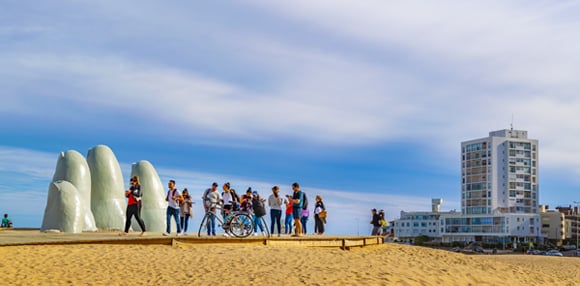
"Because of 3 previous head injuries, I struggle with remembering precise wording & phrasing of Spanish, especially now when faced with formal Castillano... But people are so patient & understanding, even if you arrive speaking Mexican Spanish, they still understand you, as most of their TV is in Mexican Spanish," commented an expat in Punta del Diablo.
An expat in Piriapolis wrote, "Bad housing and poor construction standards. Things like plumbing and electricity are often shoddy and dangerous. Floors are usually cement slabs, and most do not have proper vapor barriers so moisture and mold is a constant problem. Fly screens, like in many countries, are rare so houses are filled with mosquitoes and flies and bugs. Driving is dangerous--motorcycles speed along the shoulder of roads and between traffic. Roadways are poorly designed. Cars pull out onto the main highway from gravel roads along the side."
RelocateNow Costa Rica
RelocateNow Costa Rica's clients who run through the RelocateNow Program get quick results in formulating and successfully executing our laid out plan for moving to Costa Rica! Expert consulting for future expats in Costa Rica who wish to fast track the process of their move by receiving the specialized information they need, trustworthy connections within the country, and high level 1:1 support through the entire process.
RelocateNow Costa Rica
RelocateNow Costa Rica's clients who run through the RelocateNow Program get quick results in formulating and successfully executing our laid out plan for moving to Costa Rica! Expert consulting for future expats in Costa Rica who wish to fast track the process of their move by receiving the specialized information they need, trustworthy connections within the country, and high level 1:1 support through the entire process.
About the Author
 Betsy Burlingame is the Founder and President of Expat Exchange and is one of the Founders of Digital Nomad Exchange. She launched Expat Exchange in 1997 as her Master's thesis project at NYU. Prior to Expat Exchange, Betsy worked at AT&T in International
and Mass Market Marketing. She graduated from Ohio Wesleyan University
with a BA in International Business and German.
Betsy Burlingame is the Founder and President of Expat Exchange and is one of the Founders of Digital Nomad Exchange. She launched Expat Exchange in 1997 as her Master's thesis project at NYU. Prior to Expat Exchange, Betsy worked at AT&T in International
and Mass Market Marketing. She graduated from Ohio Wesleyan University
with a BA in International Business and German.
Some of Betsy's articles include 12 Best Places to Live in Portugal, 7 Best Places to Live in Panama and 12 Things to Know Before Moving to the Dominican Republic. Betsy loves to travel and spend time with her family. Connect with Betsy on LinkedIn.
First Published: May 13, 2020


